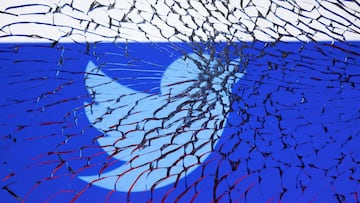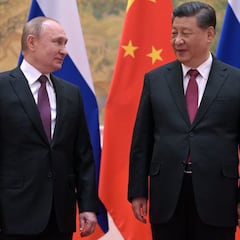Russia moves to ban Twitter and Facebook
The Kremlin has decided to ban access to social media platforms like Twitter and Facebook, limiting Russian availability to information about the war


As the Kremlin faces growing opposition to the invasion of Ukraine by its people, the government has moved to ban global social media platforms including Twitter and Facebook. The new law also states that those who spread "fake news" could face up to fifteen years in prison. This would be applied to even state supported media outlets. While a ban on YouTube was not mentioned, users in the country have also reported issues accessing the site.
More than 8,000 Russian protestors have been arrested and cutting off access to social media is one way the Kremlin can hinder protest planning. Additionally, the decision will further isolate the Russian people, not only from each other but from the rest of the world and the conflict. This means that many will be more dependent on state run media outlets that have been banned in other countries for acting as propaganda outlets for Putin's regime. This is also the latest effort to suppress expressive freedoms in a country with a history of jailing, and even poisoning, political dissidents.
More:
- Anonymous hack Russian TV
- Where are Europe's nuclear power plants?
- Zaporizhzhia nuclear power plant stable after Russian attack
- Chernobyl, the worst manmade disaster
- What is a no-fly zone?
One of the highest profile victims of a Kremlin attack is Alexei Navaly who was poisoned in August 2020. Navaly was treated in Germany and chose to return to Russia in January 2021 where he was arrested. He is still in prison, but from his social media platforms has encouraged Russians to take to the streets to protest the invasion of Ukraine.
This comes after Meta, the parent company of Facebook and Instagram, and Twitter had banned dozens of accounts, including those for various Russian state media companies. While the move may not be entirely retaliatory, it could be motivated at least in part by the action taken by the platforms.
Have the bans gone into effect?
The prohibition on Twitter was announced on Friday 4 March, but in the hours following some journalists from the US including James Longman an ABC NEWS Foreign Correspondent tweeted that he still had access to the program.
I’m still able to access Facebook and Twitter in Russia. It may take time for code to trickle through, I don’t know. But for now full access. Announcing a ban on something is one thing, making sure it happens is another.
— James Longman (@JamesAALongman) March 4, 2022
Related stories
After tweeting about the announcement Longman followed describing the surreal nature of not knowing if a Tweet will be the last.
Something rather unsettling about tweeting what might be your last tweet.
— James Longman (@JamesAALongman) March 4, 2022
What other social media platforms and media outlets have been banned?
In addition to Twitter and Facebook, the Kremlin is cracking down on foreign media outlets to assert greater control over the messaging on the invasion available to Russians. Outlets banned in Russia include the BBC Russian service, Radio Free Europe/Radio Liberty, Meduza, and Deutsche Welle.

